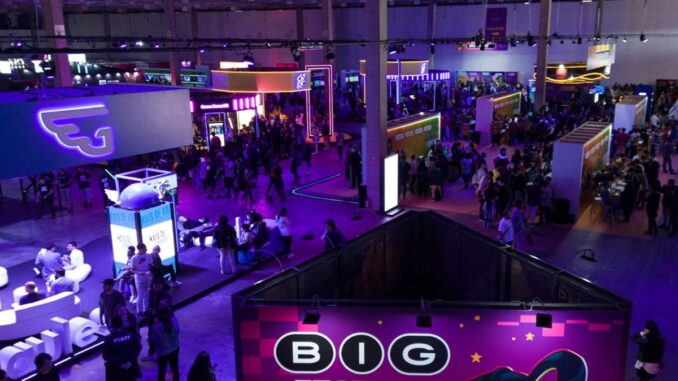
[ad_1]
Brazilian President Luis Inácio Lula da Silva signed into law the legal framework for the electronic games industry in Brazil.
The project establishes legal basis for gaming activities in Brazil, and promotes contributions to the growth of the market in the country.
As a relatively young industry, gaming always has to be aggressive about getting access to the same cultural and government recognition as other entertainment, as well as tax breaks. Games are also an industry where — at least in most years — there is the promise of job creation in the future.
Rodrigo Terra is president of Abragames in São Paulo, Brazil. He said in a recent interview with GamesBeat that Abragames, Brazilian Association of Digital Game Developers, had advocated for years for the official recognition of games as an industry by the government, as well as tax breaks in light of the potential of gaming to create a vibrant game industry in the future.
GB Event
GamesBeat Summit Call for Speakers
We’re thrilled to open our call for speakers to our flagship event, GamesBeat Summit 2024 hosted in Los Angeles, where we will explore the theme of “Resilience and Adaption”.
Apply to speak here
Terra said the Brazilian industry has been tracking other political movements on behalf of games around the world, including Canada and South Korea. He noted that Canada, the United Kingdom and France have had tax breaks for many years. It took five years to get to the point of having a bill ready before Congress to do research on the size of the game market, which is huge.
Based on a survey, Brazil generated $2.3 billion in revenue in 2021 and it is growing at 5% a year. The country has more than 1,000 game studios and 12,000 workers. That made it the 12th-largest game industry in the world.
In 2022, Brazil was ranked as the fifth-largest market for gamers with 102 million players, according to Newzoo. The industry grew 3.2% that year, even as the world’s game industry contracted by 5%, according to the Brazil Game Survey, released in 2023.
About 80% of the population plays games, with PC and console gamers playing an average of 5.12 hours a week.

Brazilian senators Leila Barros and Flávio Arns authored the bill and proactively consulted various people from the game development industry, including Abragames. A lot of the political activity started in 2021, after some attacks on gaming from conservative politicians.
Since 2021, the game companies have been lobbying the government that they need to be recognized as an industry to qualify for a direct stance with the government. Theoretically, once the industry is defined, it can lobby for tax breaks from the government in exchange for creating good jobs.
A few years ago, many governments and organizations like the World Health Organization (WHO) recognized that games were good for the mental health of people during the pandemic. The bill’s journey in the Senate started in 2022, and it has been winding back and forth on its legislative journey.
“We have one of the largest consumers of technology, but we’re not even close to being organized” like the tech companies and social media firms, Terra said. “Since the 1990s, we were treated like a part of the software ecosystem. The industry organized itself and said to the government that we need to consider video games as an industry per se.”
If the current version of the bill stands, Terra said, “We will have a legal framework that recognizes games as an industry in Brazil.”
Terra said the aim is to open up a horizon of possibilities, end misconceptions about what video games are, and boost the economic development of the sector over the next decades.
[ad_2]
Source link





Be the first to comment